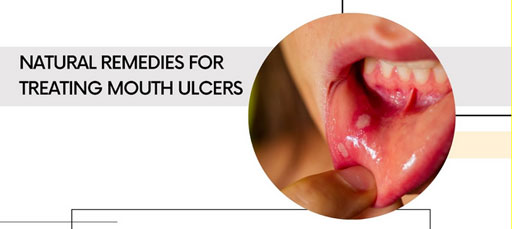
How to treat Mouth Ulcers naturally
Table of Content
More commonly known as mouth ulcers, canker sores mean pain and truly are discomforts. These small painful sores or ulcers normally have a tendency to come to the soft tissues in the mouth. Now, just one or two would normally go in just a matter of one to two weeks, but there happen to be a few natural remedies that can really help reduce pain and promote quick healing. They, of course, might be pretty uncomfortable while eating, drinking, or even speaking.
Understanding Mouth Ulcers
Before going into the cures, let’s first get to understand what mouth ulcers are and why they happen. Basically, it is a sore found in one’s mouth. It may come in distinct forms from being a round or oval shape to being a white or yellow center enclosed within a red border. Painful, huh? But what causes it? These basically include:
- Minor injuries: This is simple. You bite your cheek, brush too hard, or even use a toothbrush with hard bristles; in comes the mouth ulcers.
- Food sensitivities: Very acidic or very spicy foods can irritate the ulcers when they come in contact with tender tissues in the mouth.
- Nutritional deficiencies: Deficiency of some of the common nutrients, like vitamin B12, iron, and folic acid, in your diet is another cause that can be attributed to the formation of mouth ulcers.
- Stress: It is found that a person falls prey to this disorder when he or she has been suffering from mental stress or a weak immune system.
Natural Remedies to Treat Mouth Ulcers
Mouth ulcers, also known as canker sores or aphthous ulcers, can vary in type and severity. Here are some
different types of mouth ulcers:
- Salt Water Gargle: Gargling with warm salt water soothes the ulcer and is good for its healing. Mix a teaspoon of salt in a cup of warm water; gargle for thirty seconds and spit it out
- Honey: Apply pure honey several times a day directly on the ulcer. Honey has antibacterial properties and is applied for healing purposes, thus it helps to quicken up the process of recovery.
- Oil Pulling: A patient can rinse the mouth with this oil. The patient can hold one tablespoon of it inside the mouth for about 15 minutes. The oil reduces inflammation and relieves a patient from pain also.
- Aloe Vera Gel: Drip a small amount of pure aloe vera gel onto the ulcer; it helps to cool it down, hence soothing it and probably might have anti-inflammatory properties that foster its healing.
- Chamomile Tea Rinse: This works as anti-inflammatory and anti-septic agents. Boil the tea and let it cool. Gargle with this a few times in a day, it shall reduce the pain while healing.
- Vitamin Supplements: In case the mouth ulcers are recurring, supplements of vitamin B12, iron or folic acid may be taken, but only on medical advice, for that could be an indication of deficiency of these vitamins.
- Irritants to Be Avoided: An acidic and spicy food has to be abstained. Also, the food items should be avoided that may further irritate the ulcer—rough or crunchy types of food.
When to Seek Medical Attention
On their part, most cases of ulcers in the mouth do clear up without any form of medical intervention; however, there are some cases whereby it may be very important to seek professional medical advice. You should know when it is necessary to seek a health professional to help you.
- Persistent ulcers: If the ulcer isn’t showing a way of healing within several weeks or recurs, consult a physician.
- Severe pain: Pain that is unbearable and interfering with the ability to eat or drink should have consultation by a doctor.
Conclusion
Some of these home remedies help in killing the pain and hastening the recovery of an ulcer in your mouth. More importantly, it is about prevention. Oral hygiene combined with stress management and taking care of what one takes in shall help reduce the frequency of such mouth sores that keep on developing. And if the ulcers continue or become more problematic, then one has to take professional medical help.
Leave a Reply
Leave a Reply
Explore More Similar Posts
Explore More Blogs


Leave a Reply